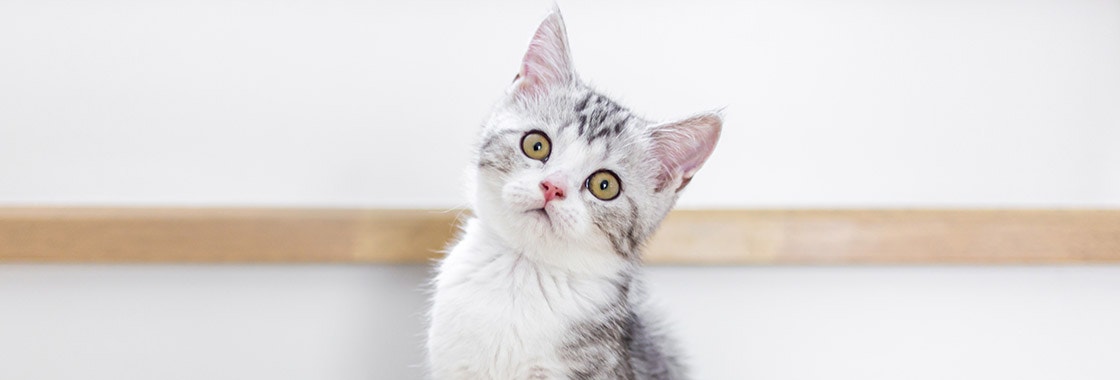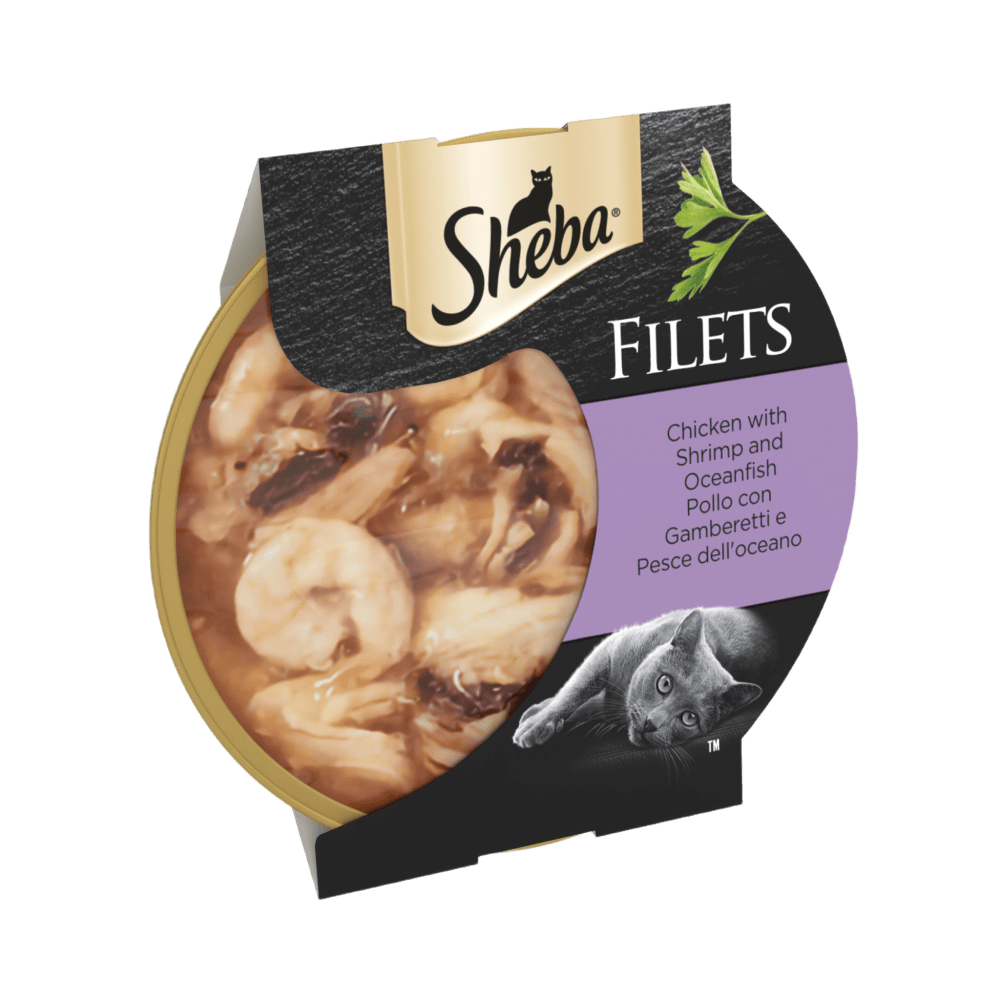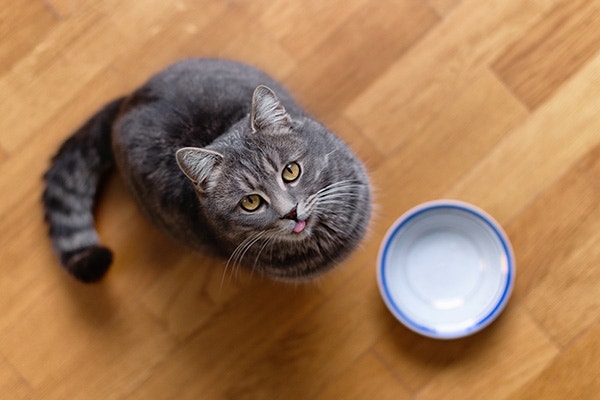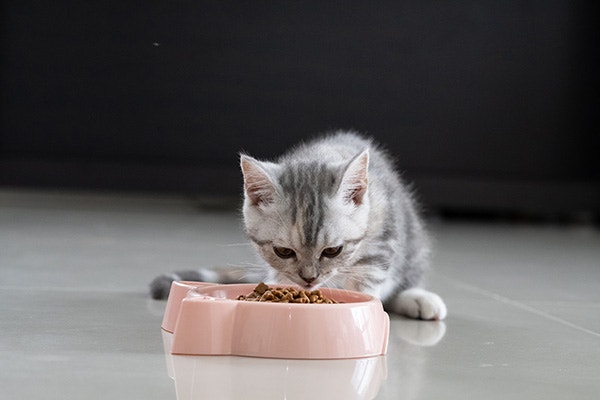Kitten diarrhoea


Share
Bringing a kitten home is exciting and rewarding but can also be worrying—especially if your kitten has diarrhoea and you’re unsure what to do next. The good news is that, in many cases, kitten diarrhoea is manageable with proper care.
If you’re thinking, 'My kitten has diarrhoea,' it often presents as loose, watery stools, sometimes with changes in appetite, dehydration, or lethargy. Mild cases may resolve on their own, even if it's persistent and your kitten has diarrhoea but acts normal. In this guide, we’ll explore various reasons why a kitten may experience an upset stomach from potential causes, treatment options and more ways to keep your kitten healthy.
Why Does My Kitten Have diarrhoea
It can be worrying if your kitten has diarrhoea, but understanding the cause can help you take the proper steps. What causes diarrhoea in cats, especially kittens, varies, but some common triggers include:
- Dietary changes: Switching foods too quickly or offering rich treats can upset digestion. Learn more about switching kitten food and the main differences between cat and kitten food.
- Infections or parasites: Bacterial, viral, or parasitic infections are common causes of kitten diarrhoea.
- Lactose intolerance: Many kittens cannot properly digest cow’s milk, which causes digestive discomfort and loose stools. You can buy milk that has been especially formulated for cats.
- Stress: Moving homes or changes in routine can affect digestion.
- Toxic substances: Ingesting spoiled food or harmful household items.
If your kitten has diarrhoea but acts normal, monitor them closely and ensure they stay hydrated. However, if diarrhoea lasts more than 24 hours, contains blood, or is accompanied by vomiting or lethargy, consult a vet immediately.
My Kitten Has diarrhoea But Acts Normal
If your kitten has diarrhoea but acts normal, it may not seem urgent but you must monitor their condition. Kittens have sensitive digestive systems, and diarrhoea can occur due to minor diet changes, stress, or mild infections. Some kittens remain playful and energetic despite having loose stools, but this doesn’t mean owners should ignore the issue.
- Ensure your kitten stays hydrated, as diarrhoea can quickly lead to dehydration.
- Check their litter tray for any changes in stool consistency or the presence of blood.
- Keep an eye on their appetite; eating is typically a good sign, but a loss of appetite can indicate a bigger problem.
- If kitten diarrhoea persists for more than 24 hours or worsens, consult a vet to rule out infections or parasites.
Even if your kitten seems fine, you’re asking, “Does my kitten have diarrhoea?” and has other symptoms lasting more than 24 hours; consult advice from your veterinarian to rule out more serious conditions. Prolonged diarrhoea can impact their health, so early intervention is always best.
What to Do if Your Kitten Has diarrhoea
Are you wondering, “Why does my kitten have diarrhoea and what to do?”. Remember causes can be something simple like a dietary change, but it’s essential to monitor other symptoms. Your goal is to support your kitten's recovery during this period, so they stay hydrated and nourished.
Follow these steps to help your kitten feel better:
- Encourage hydration: Offer fresh water at all times and consider adding a bit of water to their food to keep them hydrated.
- Provide a simple diet: Stick to high-quality, easily digestible kitten food.
- Keep their space clean: Regularly clean their litter tray and surrounding area to prevent infections and discomfort.
- Reduce stress: Create a calm environment with familiar scents and plenty of cosy spaces.
- Know when to see a vet: If kitten diarrhoea lasts longer than 48 hours, contains blood, or is accompanied by vomiting or lethargy, schedule a vet visit.
What To Feed A Kitten With diarrhoea
When your kitten has diarrhoea, choosing the proper diet is essential for easing their digestive system and restoring normal stool consistency. Stick to easily digestible, bland foods, such as:
- Boiled chicken or turkey: Unseasoned, skinless, and shredded for easy digestion.
- Specialised kitten food: Look for formulas for digestive health to provide balanced nutrition without irritating the stomach.
Avoid dairy products, as kittens and cats lack the enzymes to digest lactose properly, which can exacerbate diarrhoea. Additionally, steer clear of rich, fatty, or heavily processed foods that may further upset their stomachs.
Hydration is just as important. Always ensure fresh water is available, and if your kitten is reluctant to drink, consider consulting your vet. Your vet may recommend offering an electrolyte solution to help replenish lost fluids. If kitten diarrhoea persists, consult your vet for further guidance. To learn more, read what to feed a kitten with diarrhoea for general tips on nutrition and promoting health.
How Vets Diagnose the Cause of Kitten diarrhoea
If your kitten has diarrhoea that isn’t improving, a vet can help pinpoint the cause. They may use:
- Faecal tests – To check for parasites, bacteria, or infections.
- Blood work – To assess overall health and rule out underlying issues.
- Diet review – To spot any food triggers or sudden changes that may upset their stomach.
A kitten has diarrhoea but acts normal in many cases due to diet changes or stress, but it could also indicate a mild infection or digestive upset. Therefore, treatment will depend on the cause and might include medication, probiotics, or diet adjustments. If you're unsure what causes cat diarrhoea, a vet visit can provide answers and get your kitten back to feeling their best.
Kitten diarrhoea FAQs
Can overfeeding cause diarrhoea in kittens?
Always consider what to feed a kitten with diarrhoea and how much. Kittens cannot overeat, so offer smaller and more frequent meals. Their tiny stomachs are sensitive, and too much food—especially rich, high-fat meals—can overwhelm their digestive system. Otherwise, overfeeding can lead to loose stools or an upset stomach. Remember to consider the correct portion sizes and stick to a kitten-specific diet to help maintain balanced digestion. If symptoms persist, consult a vet. Learn more about the essentials of how often to feed a kitten.
How long will a kitten have diarrhoea after changing food?
Kitten diarrhoea can result from a sudden diet change and last 24-48 hours as the stomach adjusts. Gradually transitioning to new food over a week reduces the risk of digestive upset. If diarrhoea lasts longer than two days or your kitten has diarrhoea but acts normal yet continues having loose stools, a vet visit is recommended to rule out other causes.
What Causes a Kitten to Have diarrhoea With Blood in It?
Blood in kitten diarrhoea can be alarming and signal serious health concerns, such as bacterial or viral infections, parasites like coccidia or giardia, or severe intestinal irritation. It can also result from dietary intolerances, ingestion of toxic substances, or even stress-related colitis.
If your kitten has diarrhoea with blood, contact your vet immediately. Dehydration can become a concern, so keep your kitten hydrated and consult a vet if necessary. Early intervention can help diagnose the cause and prevent dehydration or further complications. In the meantime, ensure your kitten stays hydrated and avoids sudden diet changes, as sensitive stomachs can worsen the condition.
What Causes Yellow diarrhoea in Kittens?
Yellow kitten diarrhoea can indicate liver issues, food intolerances, or an overly rich diet high in fat. It may also be caused by rapid food changes, bacterial infections, or conditions affecting bile production, which gives stool its standard brown colour. If your kitten has yellow diarrhoea that lasts more than 24 hours and has other symptoms like vomiting or lethargy, consult a vet. For your kitten's optimum health, feed a complete, balanced diet tailored to their needs until 12 months old, then transition over a week onto adult cat food.











